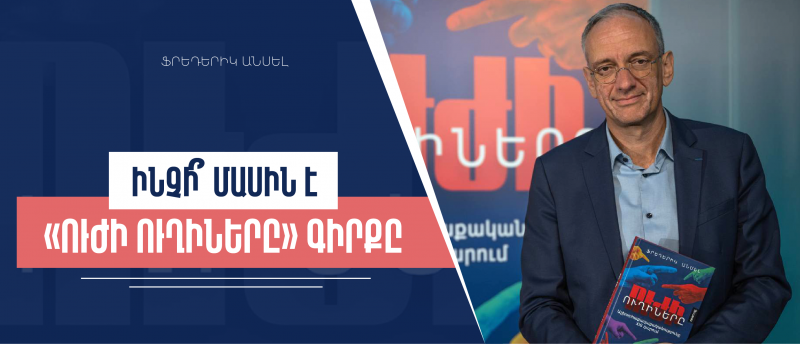There is no power, there is only evidence of power: Frédéric Encel, author of the book "The Paths of Power” (video)

In the book "The Paths of Power," Frédéric Encel, a French writer and geopolitics scholar, examines the emergence of new non-state actors that are exerting significant influence on the world stage. Incorporating historical perspectives as necessary, Encel
The world is trying to maintain the balance of power around the United States-Russia confrontation. Fighting with Ukraine's desperation, undecided with Armenia's uncertainty and maneuvering with Turkey's cunning.
The nuclear threat is restrained, but how long would that be possible to do? The red lines once drawn by states and leaders have blurred over time, and the situation is not merely tense—it is erupting globally. According to Frédéric Encel, the author of "The Paths of Power," power, in its most literal sense, will ultimately determine the outcome of these challenges.
"It is impossible to talk about geopolitics without talking about power. Power balances, spheres of influence, political, economic, military conflicts are at the basis of international relations”.
Frédéric Encel emphasizes two of the dozens of power factors: the state and geography, both of which have direct relevance to Armenia. The collapse of the state represents the ultimate endpoint, while geography provides the means to either prevent reaching that endpoint or to leverage its decisive advantage and avoid losing everything.
"In another paradigmatic example of this undeniable reality, in the fall of 2020, the Azerbaijani army decisively defeated the Armenian forces, capitalizing on the unique mountainous geography and employing weapons specifically tailored to exploit it, notably drones."
In this book, Frédéric Encel consistently provides a detailed picture of the current state of the world, identifying trends and developments, and drawing on historical references where necessary. These references serve not as lessons but as instructive examples.
Read also

Winterfest to feature David Georgyan’s sci-fi action novel Impedance (trailer)

At Winterfest 2026, Newmag will present Marianna Hakobyan’s “Don’t Change the Names” (trailer)

Closing and Award Ceremony of the “Sprout in Armenian – 2025” Competition at Newmag Winterfest

“I hope my story will inspire many and help them keep believing and dreaming.” Henrikh Mkhitaryan’s welcoming speech to Armenian fans (video)

